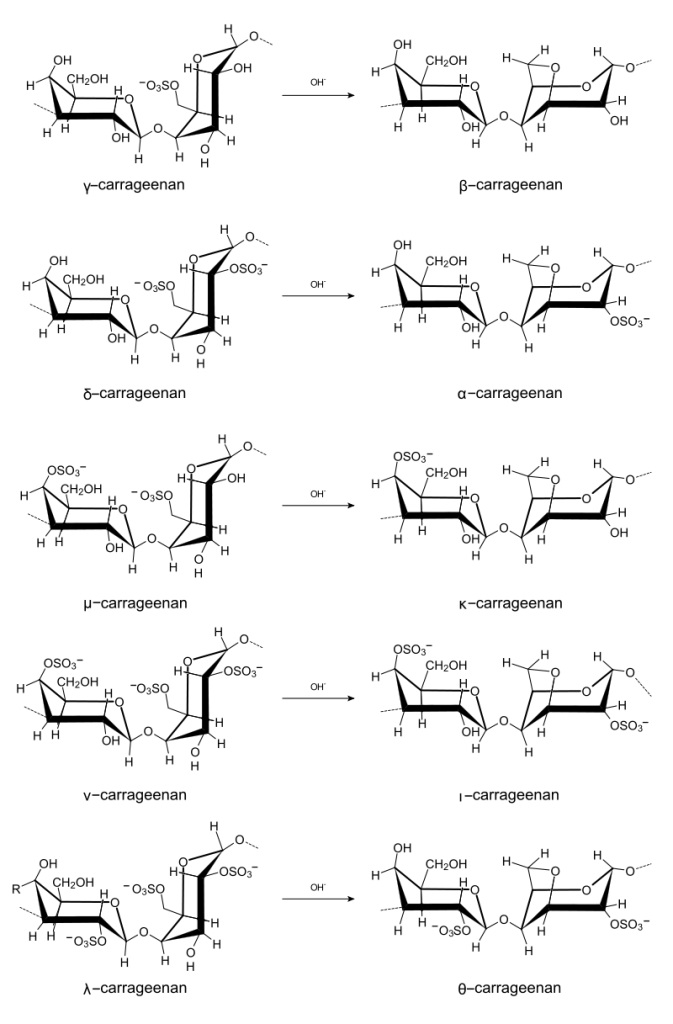As a Food Science major, I get real sad when people get scared of ingredients in their food because they don’t know what they are. I want to help change that. Consumers should be aware of what’s going into their body and have some easily understandable information about common additives.
Here’s my attempt at that:
What is Carrageenan (Care-uh-geen-nin):

Photo courtesy of foodiedubai.com
Carrageenan is a natural thickener that comes from red seaweed, primarily Irish moss. This is a great alternative to gelatin (think jello) since it’s vegetarian, vegan, halal, and kosher — just look at it!
Of course, whole seaweed isn’t just added to your food products. The thickening component, polysaccharide, must be extracted first. What is a polysaccharide? Poly = many and saccharide = carbohydrate. It’s just a large carbohydrate. There are many different polysaccharides that vary based on the components that make them up, but some familiar examples are: starch (found in potatoes among other things), cellulose (think trees and paper), and pectin (found in fruits and helps make jam thick).

Photo courtesy of wikipedia.org
Carrageenan was used back in China in 600 BC and in Ireland in 400 AD. The way they extracted the carrageenan was to boil the seaweed then add cold water to cool, strain, then cool for 24 hours. It’s a pretty simple process. Nowadays, the process is a bit different since carrageenan needs to be produced on an industrial scale but it’s still based on the same principles.
Products you can find it in:
You can find them as thickeners and stabilizers in many dairy products: ice cream, processed cheese, and chocolate milk. It helps give products a creamy mouthfeel that you might’ve taken for granted.
Fun fact: It can even be found in toothpaste.

GIF courtesy of giphy.com
Is it safe?
There have been people who have claimed that carrageenan causes gastrointestinal problems. However, they most likely confused poligeenan — the degraded form of carrageenan– with carrageenan which is unfortunate because they aren’t the same and while poligeenan is a possible carcinogen, carrageenan is not a carcinogen.
No one panic: The process of extracting carrageenan out of red seaweed is not extreme enough to create poligeenan. The FDA (Food and Drug Administration) and WHO (World Health Organization) have found this additive to be safe. It has even been used in some infant formulas which is saying something since infants have the weakest immune systems.
Long story short:
Carrageenan might look like a scary word but it’s not too bad when you get to know it. It’s used as a thickener in products such as ice cream and toothpaste. Many studies have been done that have concluded that it is indeed safe to consume.


